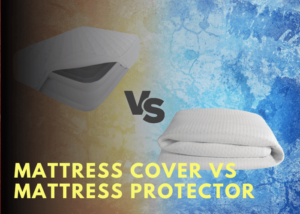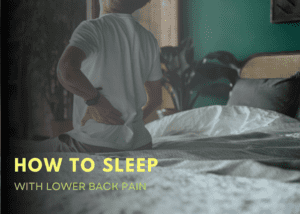Should I go to the emergency room with a ruptured eardrum? What is the treatment if you have a ruptured eardrum?
Go to the emergency room if you have a ruptured eardrum. A small piece of your tissue is grafted over the rupture. Sometimes the symptoms can be severe such as dizziness, vomiting, bloody discharge, and more symptoms. If the rupture is severe, you may need surgery Tympanoplasty.
Sleeping with a ruptured eardrum
It is generally recommended to sleep on your side or back with a ruptured eardrum. This can help prevent further damage to the eardrum and reduce the risk of infection.
If you are experiencing pain or discomfort when sleeping on your side or back, you can try using a body pillow to support your head and neck in a more comfortable position.
Avoid sleeping on your stomach, as this can put pressure on the eardrum and increase the risk of further injury.
If you are having difficulty sleeping or are experiencing a lot of pain, you should talk to your doctor or healthcare provider for further advice. They may be able to suggest additional strategies or techniques that can help you get a good night’s sleep.
How do I know if I ruptured my eardrum?
There are several signs that something is wrong with your ear and can include the following symptoms:
- Bloody discharge from the ear
- Tinnitus is a continuous noise that only you can hear
- Hearing loss
- Severe pain in the ear
- Vertigo, a spinning sensation
- Vomiting from the effects of vertigo
The above are clear signs you have a problem with your inner ear, and you should seek medical assistance.
How long will a ruptured eardrum leak?
2 to 3 days. It can be distressing to see cloudy pus-like discharge coming from your ear, but it will subside within a few days as your eardrum starts to heal.
If you have any concerns or are in pain and feel dizzy, you should seek assistance from a doctor.
How long does a ruptured eardrum hurt?
A few days. Most ruptured eardrums heal quickly in around a few days and don’t need treatment.
A ruptured eardrum is also called a perforated eardrum, a tear or small hole in the tympanic membrane.
A ruptured eardrum can be painful and sometimes accompanied by an audible high-pitched whistle.
If the symptoms are mild, then the doctor will most likely let the eardrum heal by itself over a few days.
How do you relieve pain from a ruptured eardrum?
Ruptured eardrums are not always painful. If you are experiencing pain, you can be prescribed antibiotics to reduce the risk of infection.
You can take over-the-counter pain relief such as paracetamol or ibuprofen and apply a warm compress to the outer ear to relieve the pain.
Do ear infections hurt more lying down?
Yes. Pain frequently gets worse at night as your body tries to relax, and cortisol levels drop in your body.
The pressure increases at night when you lay down, so keep your head elevated on a couple of pillows to allow natural drainage of the fluids.
You may also experience a runny nose, cough, fever, vomiting, and dizziness as the eardrum comes under pressure.
Can you live with a perforated eardrum?
Yes. A ruptured eardrum is not considered a serious issue. This does not mean that you don’t go and get checked out by your doctor.
In some cases, complications can set in, such as an ear infection that can be a game-changer in administering the treatment. Your doctor may recommend that you have a surgical procedure to close the rupture with a small skin graft.
Mainly, you can expect your perforated eardrum to heal naturally, and it should not cause you any problems.
What causes a perforated eardrum?
Injury, A sudden blow to the side of the head and ear, changes in pressure from scuba diving, generally on an ascent where the eustachian tube cannot clear the pressure differential.
Flying can cause a ruptured eardrum for the same reasons as scuba diving, you experience cabin pressure changes, and your ears cannot adjust to the differential pressure from the inner ear to the outer ear.
Sudden loud noises such as an explosion or being very close to large speakers at a concert can cause eardrum damage.
How do I take a shower with a ruptured eardrum?
Block the ear with a rupture. You can wear a moldable ear guard such as a waterproof silicone earplug. You will need to keep the water from entering the ear when showering or bathing.
You can palace a cotton ball coated with petroleum jelly for waterproofing in your ear to prevent the water from entering the ear.
Keep your ear dry unless you have been prescribed ear drops to enhance the healing process.
What not to do when you have a ruptured eardrum?
Keep your ear free from external objects like cotton buds. Don’t use cotton buds to try and clean your ear. You can cause the delicate membrane to tear further, worsening the problem.
Don’t use over-the-counter ear drops. Keep your ears dry unless your doctor has made other recommendations.
Stay away from swimming pools and swimming in general. Your ear needs to be dry and not exposed to any possible infections.
Be extremely careful when showering or bathing. Be mindful not to get shampoo detergent in your ear.
Do not blow your nose hard regardless of the temptations. Blowing your nose hard can damage the inner ear and extend to healing.
Can a sinus infection cause a ruptured eardrum?
Yes. Sinus infections can cause fluid to be trapped in the eustachian tube behind the eardrum.
This can lead to bacterial infections that cause pain and swelling that can indeed rupture the eardrum.
If you do feel pain and pressure around your eardrum, it is vital to seek medical advice from your doctor without delay.
Will fluid behind the eardrum go away on its own?
Yes, Otitis media with effusion means you have fluid in your middle ear. In almost all cases, the fluid drains naturally over some time. Fluid build-up in the middle ear does not mean you have an infection.





